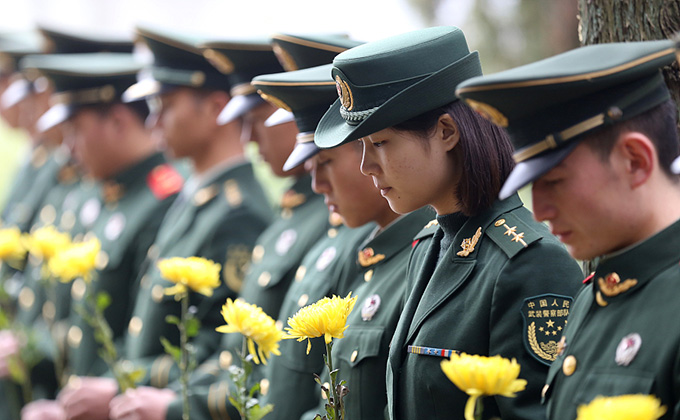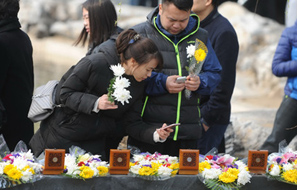Doctor falls to death after row with bereaved relatives
Every Chinese hospital should have an emergency plan to deal with doctor-patient disputes, experts said after the latest tragedy in which a doctor plunged to her death in Hebei province.
Wang Ping, a doctor in Guantao county, died after falling from the third floor of the hospital building she works in, the county government said on Saturday.
Shen Zhiyi, a 6-year-old boy with congenital heart disease, was confirmed dead around 7 pm on April 29. His family members came to find 34-year-old Wang, who was in charge of the patient's case, an hour later, the statement said.
The boy's parents, who thought their son's death was a medical accident, insulted and hit Wang in her office. They were dragged away by other medical staff, according to the statement.
Wang tied some sheets into a rope, intending to escape from the building, but fell to the ground accidentally at about 9:35 pm, the statement added.
An official surnamed Jia from the county government confirmed the fact but refused to give more details on Sunday, adding the city's health bureau and the police are still investigating.
Xie Qilin, secretary-general of the Chinese Medical Doctor Association, is observing the case, saying what is key to many medical cases is a shortage of communication channels between doctors and patients.
"Most patients' families prefer to find doctors directly instead of talking with staff members in charge of dealing with disputes in hospitals because they hope to solve their cases in a simple, fast and 'economic' way," he said.
Such a violent solution will not cost the patients' family too much money compared with suing a hospital in court and can also save them time, he added.
"In fact many hospitals have medical affair offices, used for coping with such disputes, but it is hard getting them to work," he said.
What is worse, some hospitals and local governments have not established such offices or a dispute settlement system, which is why similar tragedies often occur, Xie added.
"In addition, most medical staff, especially ones in rural areas, have no awareness and knowledge about how to protect themselves when emergencies happen. They don't know how to talk with enraged patients, let alone how to escape danger," he added.
Li Huijuan, a lawyer specializing in doctor-patient cases, echoed Xie. She said a regulation published by the Ministry of Health asks each hospital to build up a long-term mechanism to tackle medical disputes, but it was not a compulsory requirement.
"The regulation is not a 'must' so it's hard to get it carried out," she said.
As such it is necessary to upgrade the regulation into a law, getting the attention of every hospital, she added.
"Many doctors and nurses sometimes ignore risks from their work and have never been trained or educated in how to protect themselves," she said. "Some patients and their families are desperate or are pessimistic about solving their problems in normal ways because they find violence can bring them results or compensation quickly.
"It's really a vicious spiral," she added. "Doctors are afraid of patients who intend to handle their medical problems in violent ways and pay them faster than those who lodge a lawsuit or negotiate with hospital chiefs."
To alleviate this issue, medical staff should be given training in how to prevent themselves from suffering harm. Meanwhile the government should instigate some compulsory rules, she suggested.
"For example, if a doctor finds a patient is argumentative, they can first report any dispute to a settlement office. If the patient intends to talk to the doctors, the talk can take place under police observation," she said.
"The more medical disputes happen, the worse will be the effects on the development of medical careers and the industry."

























